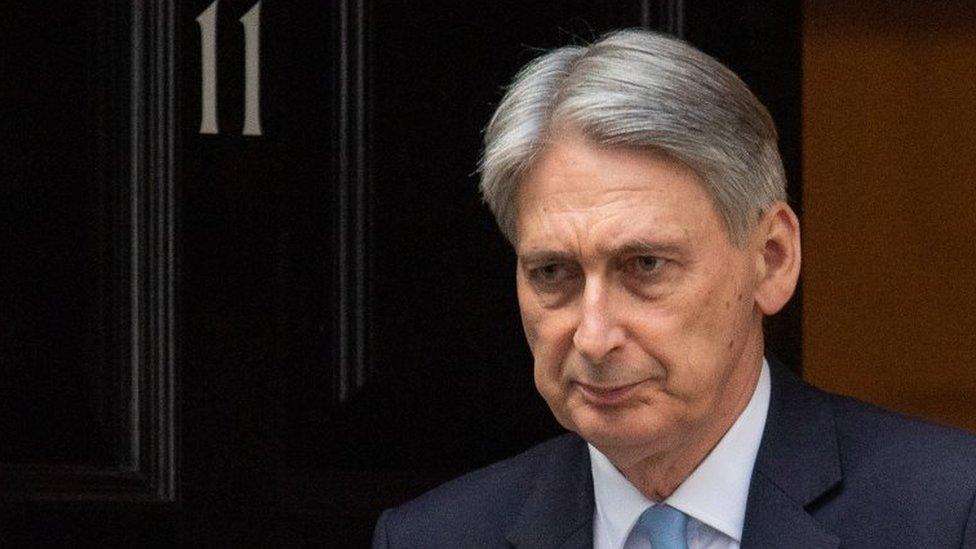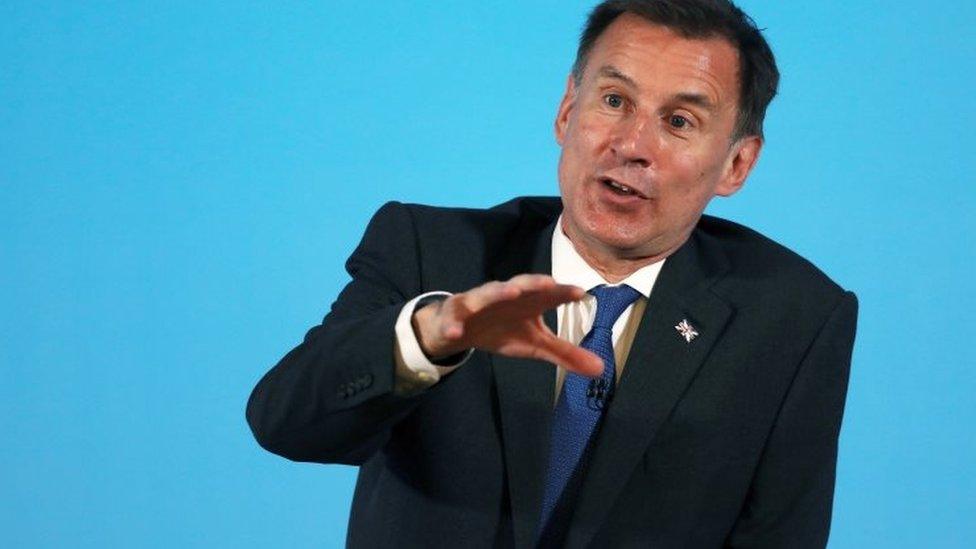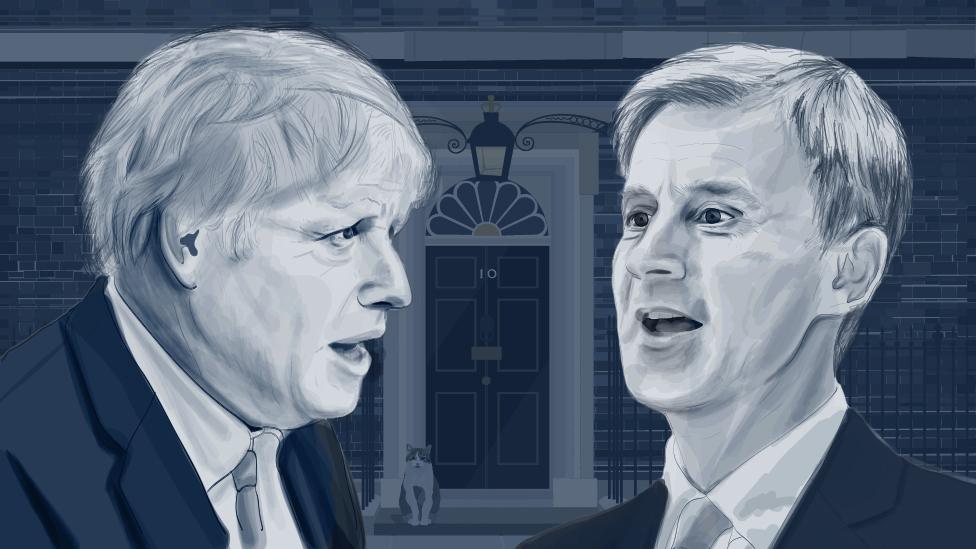Philip Hammond: MPs will and should stop no-deal Brexit
- Published
- comments

Chancellor Philip Hammond has told the BBC he and other MPs will "find a way" of blocking a no-deal Brexit.
He told Radio 4's Political Thinking Podcast he would personally oppose leaving the EU without a legal agreement on 31 October.
He warned Theresa May's successor as prime minister not to "sideline" MPs, saying this would be "shocking".
Meanwhile, Labour's deputy leader Tom Watson has urged party members to sign a declaration to remain in the EU.
Mr Watson is leading the push within the party for another Brexit referendum, and for the party to campaign to stay in the EU.
Mr Hammond is expected to be replaced as chancellor whoever wins the Conservative leadership election later this month.
He has been increasingly vociferous in his opposition to a no-deal Brexit, which both Boris Johnson and Jeremy Hunt have said they would be willing to pursue on 31 October if there is no prospect of a negotiated deal.
On Tuesday, Mr Hammond told MPs a no-deal exit, which would see the UK leave the EU's single market and customs union overnight without any kind of transition arrangement, could cause a £90bn hole in the public finances.
'Finding a way'
Speaking on Nick Robinson's Political Thinking podcast, he made clear that he would vote against a no-deal exit if it came to it in the Commons.
"The Commons has been clear already that it does not support a no-deal exit. That is my position, and as a backbencher I will continue to argue against a no-deal exit," he said.
Pressed on how MPs could stop Brexit if the government was unwilling to pass legislation amending the 31 October deadline, he said it would be "shocking" if the next prime minister tried to sideline the House of Commons.
"Well, let me quote the Speaker of the House of Commons, who has said that if the House of Commons is determined to do something, he is quite sure that it will find a way.
"And I am quite confident that the House of Commons will find a way, and indeed should be able to find a way.
"Because this is a parliamentary democracy and it would be frankly rather shocking if the House of Commons - the elected representatives of the people - could be simply sidelined by a government that was doing something that was the exact opposite of what the House of Commons clearly wanted done."
His comments were echoed by Justice Secretary David Gauke, who told the House magazine, external, a "way will be found" to block a no-deal Brexit.
Meanwhile, Cabinet Office Minister - and Mrs May's de facto deputy - David Lidington said he would not want to serve in a government committed to a no-deal Brexit.
He told the BBC: "I am very clear in my mind that I would not want to serve in a government that made a deliberate commitment to a no-deal departure from the European Union.
"I think that would be a profoundly damaging outcome."
'Shocking'
Mr Johnson has said he could not "envisage the circumstances" in which proroguing - suspending - Parliament would be needed, although he said MPs need to "take responsibility" for the situation the country was in.
His rival Jeremy Hunt has ruled it out.
On the two candidates' spending pledges - and their references to using the £26.6bn "fiscal headroom" to fund some of those promises - Mr Hammond said there was some additional spending power available.
But he said provided there was an "orderly exit of course, it will be possible to do some of the those spending promises - but not all of them".
"No deal means we will have to spend the money, but not in a discretionary way," he said.
"We will be forced to spend it on protecting businesses and industry and households from what is likely to be a surge in inflation."
- Published4 July 2019

- Published18 July 2019
